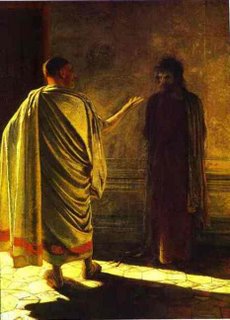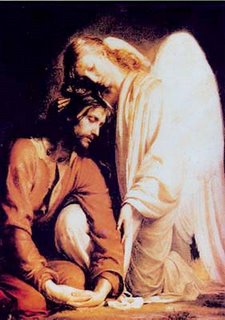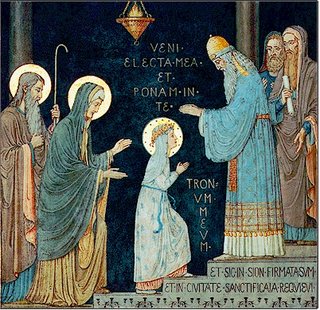
33rd Sunday in Ordinary Time
Mk 13:24-32
I confess that while preparing for the liturgy this Sunday, I feel a bit hesitant regarding proclaiming the assigned Gospel. No one wants to be an alarmist. But the Gospel today sounds more of an alarming news rather than good news.
“In those days,” Jesus said to His disciples, “the sun will be darkened, and the moon will give its light, and the stars will be falling from the sky, and the powers in the heavens will be shaken.” Not very consoling forecast, is it? Honestly, I rather give you the weather forecast today even if I would have to say a typhoon or a twister is coming our way within twenty-four hours. I had to think for a long while if I would introduce the Gospel reading today with my usual words “The Good News of our Lord Jesus Christ according to Mark”.
But was I not missing something very important? Last night, I realized that indeed I was missing three most important points in the Gospel today. First is the gathering. Second is the coming. Third is the remaining.
Gathering. The end of the world that the first lines of the Gospel today describe is not the main event. The main event is actually the beginning of a new world. The angels said Mark, will gather the elect, according to Jesus, from the four winds, from the frontiers of earth and sky. Some of our brethren insist on labeling this event as “The Rapture”. I prefer calling it as “The Gathering”.
It is the gathering of the blessed – mind you, I mean “the blessed” not “the perfect” or “the sinless”. The gathering of the elect is the get-together of the favored ones. The elect are favored not because of their credentials or clean record but essentially because of God’s merciful love. Thus, this kind of gathering is when sin and mercy meet, where mercy triumphs over justice and love, as it were, explodes into an eternal bliss in a new world that no eye has yet sin nor ear has yet heard.
Coming. Because its forecast is initially frightening, even our attention can sometimes be paralyzed by the opening words of the Gospel today. Yes, the light of the sun will be gone and, therefore, the radiance of the moon will likewise fade. The stars, too, will be no more in the sky, and the stillness of the heavens will vanish. But it will not all be about going, fading, being no more, or vanishing. Something is coming. Someone is appearing. The end of the world is not fundamentally the departure of the familiar. The end of the world is primarily the advent of the Totally Other: Jesus – the God-Made-Man. The brightness of the sun, the glow of the moon, and the luster of the stars in the sky give way to the incomparable brilliance of the One who is coming: the Son of God who has become the Son of Man. The tranquility of the heavens is broken by the Prince of Peace: Jesus the Christ, Jesus our Peace.
For one who loves Jesus, how can the Gospel today not be good news? He is coming! We shall see Him! He will take us with Him! Losing the sun, the moon, the stars, and everything in the world is nothing compared to gaining Christ the Lord. Let the heavens shake and the Son of Man appear!
Remaining. The end of the world will prove dramatically that all things fade, all things except one: the words of Jesus. And, as Simon Peter says, Jesus has the words of eternal life (Cf. Jn 6:68). If Jesus’ words of eternal life will never pass away, the end of the world is not really about the horror of death but the joy of everlasting life. Death indeed is simply a passing away because it passes so that unending life may come in. Or should we say, so that we may come into eternal life.
The world is fading – let us not fool our selves, for indeed the world is passing away even as we reflect now – but the words of Jesus that gives eternal life endures. One may have everything in the world but he is pathetic unless he has the words of Jesus to live by. He whose hands are filled today with all that the world offers will see none remaining in his hands if his heart is empty of the words of Christ.
Gathering, coming, and remaining – these are the three very important, but often overlooked, reasons why the Gospel today must be proclaimed despite its initial lines that may send shiver down anyone’s spine. The elect will be gathered. The Lord is coming. His words remain.
Beyond the darkest forecast shines the brightest vision: the vision of Christ. The vision of Christ is not only about seeing Jesus. It is rather what Jesus sees beyond a world that surely passes away. Jesus sees a future beyond suffering and death, where all tears will be wiped away and life will be unending. This capacity of Jesus to see beyond the darkest circumstances of earthly life is what we call “hope”. And in Jesus, hope is never a wishful thinking or an analgesic for a pain-laden humanity. In Jesus Christ, hope is certitude about what is yet to come.
Some months back, I learned from the National Geographic Channel the hypothesis that dinosaurs died and became extinct because a very huge meteor hit the earth and embedded itself unto the farthest deeps of our planet. The impact caused immeasurable amount of dust to rise and scatter above the surface of the earth. Due to this catastrophe, our planet was engulfed in darkness for thousands of years, no ray of the sun could penetrate our atmosphere and the earth was literally frozen. Thus, the Ice Age and the death of the last remaining dinosaurs.
The cartoon series about dinosaurs entitled, “Land Before Time” has a beautiful twist though. The dinosaurs in that movie believe in what they call “The Great Beyond” or sometimes “The Mysterious Beyond”. They have a vision. They have hope. And refuse to surrender it.
This kind of hope we need. This kind of hope is what the Gospel today proclaims. This indeed is good news for you and me.
Our challenge? Never surrender that hope, for the Lord is coming to gather us through His words that remain even as the world and everything in it fade.


















